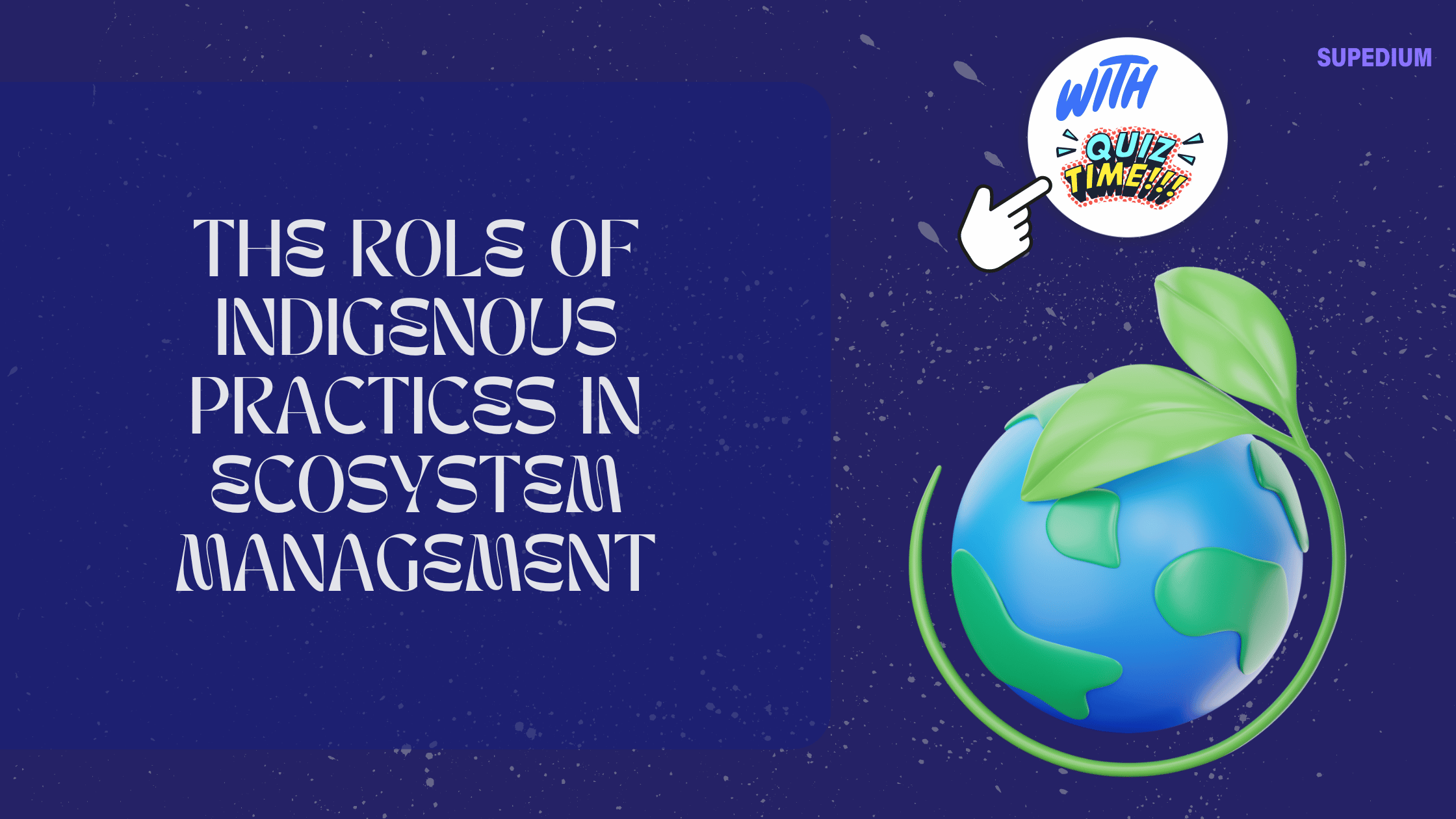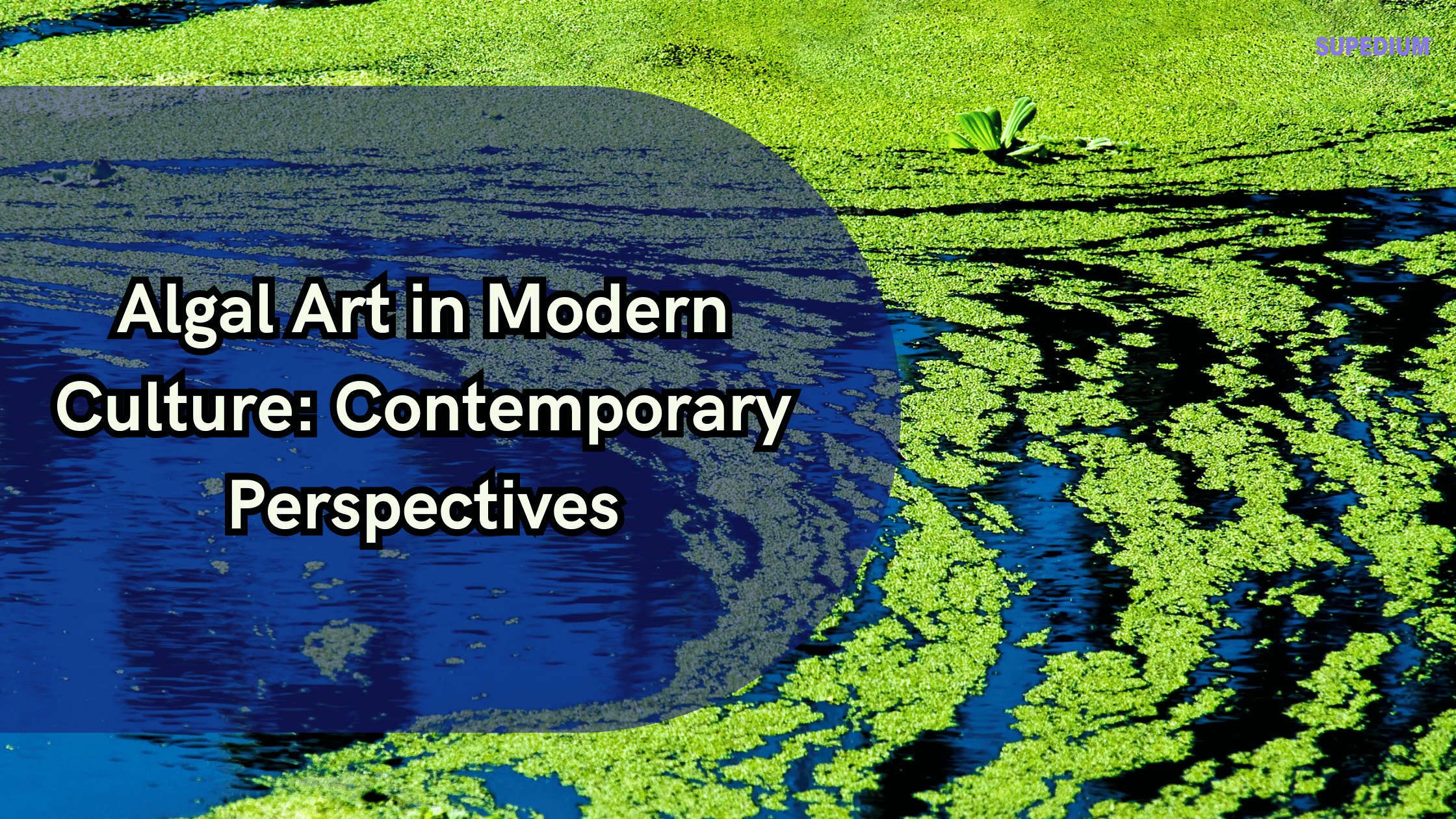Table of Contents
![]()
Introduction
Definition of Ecosystem Management
Ecosystem management is an approach to maintaining and restoring the health, diversity, and productivity of ecosystems. It aims to balance ecological, social, and economic goals, ensuring that ecosystems can sustain future generations. Traditionally, ecosystem management has often focused on scientific and technological solutions to environmental problems. However, there is growing recognition of the value of incorporating Indigenous practices into these strategies.
Overview of Indigenous Practices
Indigenous practices refer to the traditional knowledge and methods employed by Indigenous peoples to manage and interact with their natural environments. These practices are deeply rooted in cultural traditions and are often holistic, integrating spiritual, ecological, and community aspects. Historically, Indigenous peoples have developed sophisticated systems for managing land, water, and biodiversity, which have proven effective over centuries.
Historical Background
Traditional Ecological Knowledge (TEK)
Traditional Ecological Knowledge (TEK) encompasses the accumulated wisdom and practices that Indigenous peoples have developed over generations. TEK includes insights into the behavior of plants and animals, seasonal changes, and environmental processes. This knowledge is passed down through oral traditions and practical experiences, providing a comprehensive understanding of local ecosystems.
Indigenous Land Management Practices
Indigenous land management practices vary widely across different cultures and regions but share common principles of sustainability and respect for nature. Examples include controlled burns, agroforestry, and intricate water management systems. Historically, these practices have significantly influenced ecosystem structures and functions, contributing to the resilience and health of various landscapes.
Core Indigenous Practices in Ecosystem Management
Fire Management
Controlled or “cultural” burning is a traditional practice used by many Indigenous communities to manage landscapes and prevent larger, uncontrolled wildfires. For instance, Australian Aboriginal fire management involves frequent, low-intensity burns that reduce fuel loads and encourage the growth of fire-adapted plant species. Similarly, Native American tribes in the United States employed fire to maintain open landscapes, enhance hunting conditions, and promote plant species important for food and medicine.
Agroforestry and Sustainable Agriculture
Agroforestry systems, such as milpas in Mesoamerica and companion planting techniques, reflect Indigenous agricultural ingenuity. In the Amazon, Indigenous peoples practice polyculture, growing a variety of crops together to enhance soil fertility and pest management. Terracing systems in the Andes, developed by Indigenous Andean cultures, prevent soil erosion and maximize arable land in mountainous regions. These techniques demonstrate a deep understanding of ecological relationships and sustainable resource use.
Water Management
Indigenous water management practices are sophisticated and adapted to local environmental conditions. Qanats, used in the Middle East, are underground channels that efficiently transport water across arid regions. Chinampas, a form of raised field agriculture used by the Aztecs, enhance soil fertility and water retention in wetlands. Indigenous Australian water management practices, such as the use of fish traps and weirs, reflect a nuanced understanding of aquatic ecosystems and their dynamics.
Biodiversity Conservation
Many Indigenous cultures have established sacred sites and practices that contribute to biodiversity conservation. For example, the Maori of New Zealand manage marine reserves and traditional fishing grounds, ensuring the protection of critical species and habitats. Similarly, Plains Indigenous peoples in North America have developed practices to manage and conserve key species like the bison, balancing hunting with sustainable population levels.
Integration with Modern Ecosystem Management
Collaborative Approaches
There is increasing recognition of the value of integrating Indigenous knowledge with contemporary ecosystem management. Collaborative approaches, such as co-management models and Indigenous Protected Areas, combine scientific and traditional knowledge to address environmental challenges. For example, in Canada, co-management agreements with Indigenous communities have led to successful conservation outcomes in national parks and wildlife reserves.
Challenges and Opportunities
Integrating Indigenous practices with modern management strategies presents both challenges and opportunities. Recognizing and respecting Indigenous knowledge requires overcoming legal and political hurdles, as well as addressing issues of cultural appropriation and equity. However, successful integration can enhance ecosystem management by providing more comprehensive and adaptive strategies that reflect diverse perspectives and knowledge systems.
Case Studies
North America
In the United States and Canada, Indigenous fire management practices have been increasingly acknowledged for their role in reducing wildfire risks and maintaining healthy ecosystems. The Yurok Tribe in California, for example, has reinstituted traditional burning practices, leading to improved forest health and reduced wildfire severity. In the Pacific Northwest, Indigenous fisheries management practices, such as selective fishing and habitat restoration, have contributed to the recovery of salmon populations.
Australia
Aboriginal land management practices, including fire-stick farming, have had a profound impact on Australia’s biodiversity and ecosystem health. The use of controlled burns has been shown to reduce the risk of catastrophic wildfires and support the regeneration of native plant species. Research indicates that these practices can complement modern fire management strategies and improve overall fire resilience.
South America
In the Amazon, Indigenous agroforestry practices have demonstrated their effectiveness in maintaining rainforest biodiversity and soil health. Techniques such as mixed cropping and selective harvesting help preserve ecosystem functions and support the resilience of tropical rainforests. Similarly, Indigenous water management systems in the Andes, such as traditional irrigation channels, continue to play a vital role in supporting agricultural productivity and water conservation.
Lessons Learned and Best Practices
Effective Strategies for Integrating Indigenous Knowledge
Integrating Indigenous knowledge into modern ecosystem management requires recognizing its value and incorporating it in meaningful ways. Strategies include building partnerships with Indigenous communities, incorporating TEK into scientific research, and respecting traditional knowledge systems. Successful examples include collaborative land management agreements and participatory research projects that honor Indigenous expertise and practices.
Importance of Cultural Sensitivity and Inclusivity
Cultural sensitivity and inclusivity are crucial for effective collaboration with Indigenous communities. This involves acknowledging Indigenous rights, respecting traditional knowledge, and fostering equitable relationships. Building trust and open communication are essential for successful integration and ensuring that Indigenous perspectives are valued and incorporated into decision-making processes.
Future Directions
Enhancing Research and Documentation
Further research and documentation of Indigenous practices and knowledge are essential for understanding their full potential in ecosystem management. Efforts should focus on recording traditional ecological knowledge, evaluating the effectiveness of Indigenous practices, and exploring opportunities for integration with contemporary science.
Policy Recommendations
Advocating for policy changes to support Indigenous-led management and encouraging more inclusive decision-making processes are crucial for advancing ecosystem management. Policies should recognize and support Indigenous rights, provide resources for community-led conservation initiatives, and facilitate collaboration between Indigenous and non-Indigenous stakeholders.
Conclusion
Indigenous practices play a critical role in ecosystem management, offering valuable insights and strategies for maintaining and restoring environmental health. By integrating traditional ecological knowledge with modern approaches, we can enhance our ability to address complex environmental challenges and promote sustainability. Recognizing and respecting Indigenous knowledge and practices is essential for creating effective and inclusive ecosystem management strategies that benefit both people and the environment.






Be the first to comment